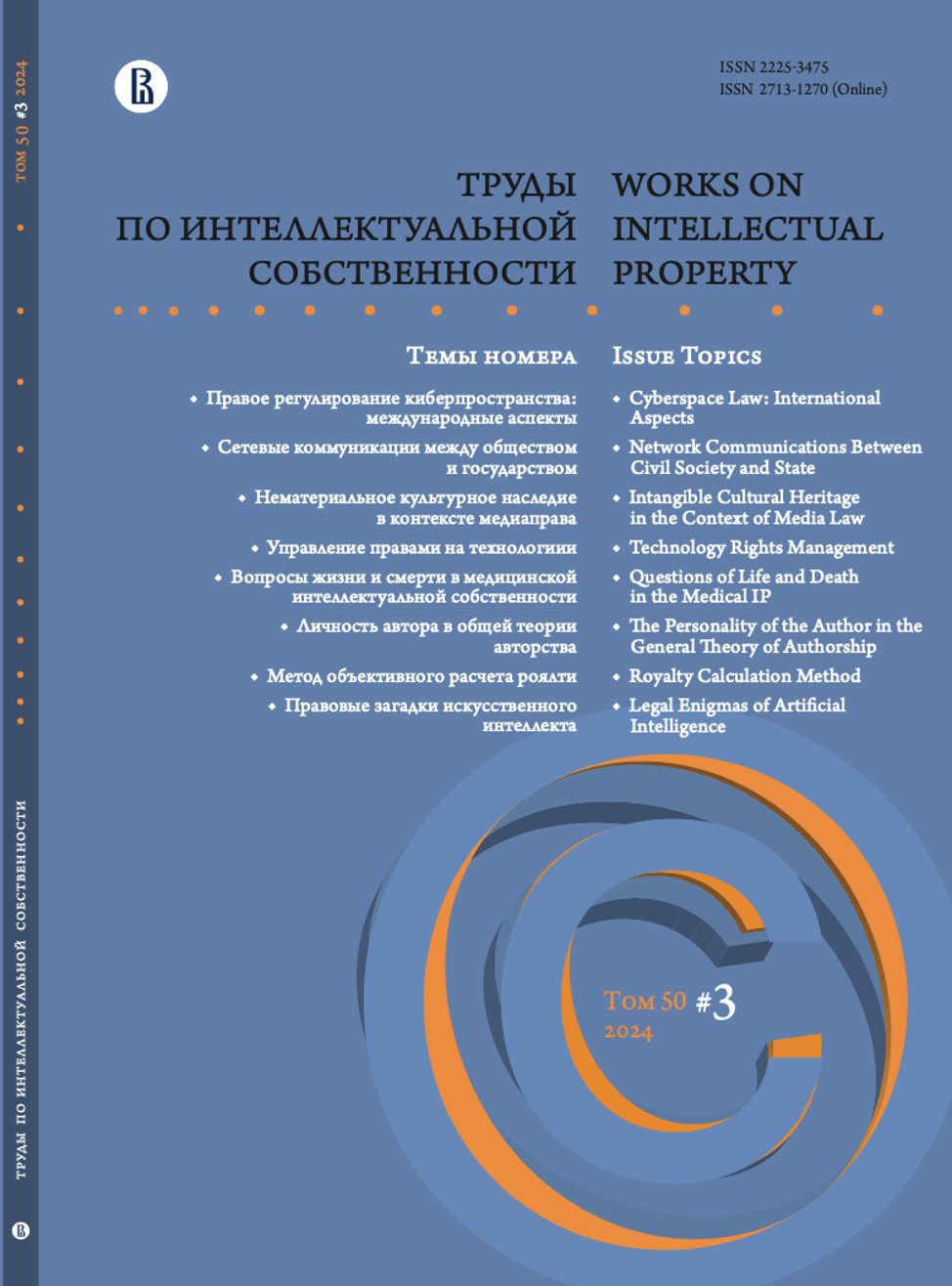THE PERSONALITY OF THE AUTHOR IN THE ERA OF ARTIFICIAL INTELLIGENCE: LESSONS FROM THE GENERAL THEORY OF AUTHORSHIP
Abstract
The article covers the problems of the legal personality of artificial intelligence and the role of human beings as creators. In particular, the article discusses the fundamental possibility of vesting artificial intelligence with legal rights and responsibilities. To solve the issue, the author turns to the general theory of authorship.
It is argued that artificial intelligence per se is not the author. As a general rule, the author is a natural person who exploits artificial intelligence to achieve their own goals. For this reason, artificial intelligence, unlike an individual (citizen), does not have and enjoy personal rights.
In addition, the entire historical experience supports the idea that it is unreasonable to recognize the legal personality of artificial intelligence. Jurisdictions adhering to the traditions of Roman law assign a dominant role to human beings as the main subject of the legal system. Equalization of the legal status of people, machines, and robots would lead to a diminution of the rights and freedoms of citizens themselves and destroy the legal system.
Based on these arguments, it is concluded that artificial intelligence, despite its importance in the life of modern society, does not form an independent legal personality. Being an instrument of labor in economic sense of the word, in legal terms an artificial intelligence should be qualified as an object of rights, not their subject.


